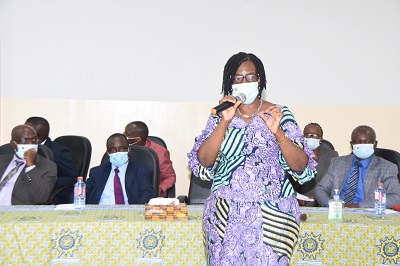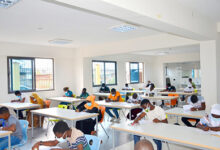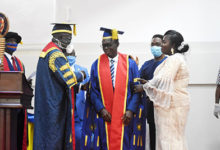
The West African Examination Council (WAEC) has asked candidates set to sit for this year’s Basic Education Certificate Examination (BECE) to apply themselves to their books ahead of the examination.
It has also cautioned schools, parents, teachers, students and invigilators against practices aimed at ‘cheating the system,’ warning that, the Council would not hesitate in applying the appropriate sanctions to persons found culpable of such acts.
“Please leave the children alone to take their examination. If they have applied themselves to learning, they would be able to perform creditably. Let us not introduce them to cheating at such young ages otherwise, we risk reaping the fruit of it in our own lifetime,” the Head of National Office (HNO) of WAEC, Mrs Wendy Addy-Lamptey said.
She was addressing a news conference to update journalists on issues surrounding the just-ended West African Senior School Certificate Examination (WASSCE) and preparations ahead of this year’s BECE.
Scheduled to begin from Monday, September 14 to Friday September 18, 2020 a total of 531,705 candidates are to sit for this year’s BECE.
The number comprises 269,419 males and 262,286 females from 17,440 schools across the country.
So far, some 2,007 centres have been designated for the conduct of the examination.
Mrs Addy-Lamptey indicated that all logistics and test items needed for the examination were ready adding that “all the question papers have been produced under tight security under the surveillance of the Ghana Police Service and WAEC security.”
According to her, the BECE would be administered in line with the ‘new normal,’ as such, all safety protocols as well as examination rules would be put in place to ensure a smooth process.
Wishing the candidates success in their papers, Mrs Addy-Lamptey asked them not to be led astray by fake content on social media saying, “all candidates should note that they can certainly pass their examinations without cheating.”
Soliciting the support of all stakeholders to safeguard the integrity of the Council’s examinations, the HNO stated that failure to do so, could pose huge implications on the development of the country.
“Although the Council is the assessment body established by law with the mandate to determine examinations required in the public interest, conduct examinations and award certificates comparable to those of equivalent examining authorities internationally, we cannot effectively carry out this mandate without the support of each stakeholder,” she said.
Mrs Addy-Lamptey particularly appealed to the media to refrain from putting out information on examinations without first cross-checking with the Council as such information most often than not, turns out to be false.
“This practice discredits the Council and also creates unnecessary anxiety and panic among candidates who may be taking such a high stake public examination for the first time in their lives,” she said.
BY ABIGAIL ANNOH





